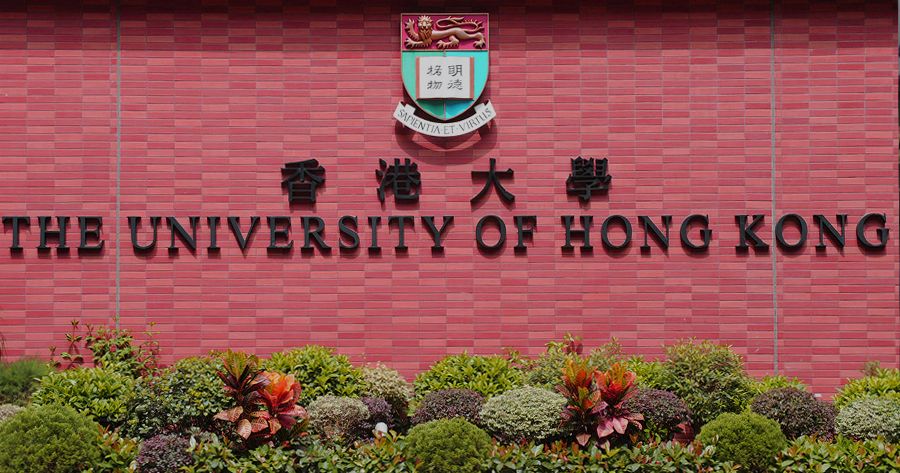Environmental groups WildAid and Hong Kong Shark Foundation have urged restaurants in Hong Kong to stop selling shark fin soup amid concerns about over-fishing.
In a survey released on Thursday, Hong Kong Shark Foundation found that 80 per cent of Lunar New Year banquet menus in Chinese restaurants offer dishes made from shark fin, and only half of the restaurants offer shark-free options for consumers.
The survey also found that customers are rarely offered shark-free alternatives, and – at some restaurants – are charged an additional amount to remove shark fin from the menu.

Finning involves the removal of fins from sharks whilst the animal is still alive – they are sometimes then dumped back into the ocean where they die of starvation as they are unable to swim properly, according to NGO WWF.
Legislator Elizabeth Quat said that it is still common practice for shark fin to appear on restaurant menus, and customers may “unintentionally” consume the product.
“After successfully passing the ivory ban, the next step should be urging the government to study how to reduce the local consumption of shark fin and tighten trade regulations, so that Hong Kong shoulders the responsibility of shark conservation.”
The group has asked Chinese restaurant groups to “fulfil social responsibilities by stopping the promotion of shark fin products” as well as set targets to reduce shark fin sales.
‘Unscrupulous commercial activity’
Meanwhile, WildAid has initiated a petition asking Maxim’s restaurant group to remove blue shark fin from all its menus. The petition, addressed to CEO Maxim’s Caterer’s Limited Michael Wu, was signed by over 6,000 people.
“Maxim’s are claiming to the entire world that they care about sustainability, but they still continue to sell dirty fin shark fin soup made from blue sharks,” WildAid’s Wildlife Campaigner Alex Hofford told HKFP.

According to the petition, Maxim has claimed they only serve shark fin soup from blue sharks, which they say face a “lesser-risk” of becoming endangered – but Hofford said that blue sharks are being overfished at unsustainable rates due to a lack of catch limits. “[M]uch of those blue shark fins are sent to Hong Kong ending up in Maxim’s soup bowls.”
“Like the ivory trade, this kind of unscrupulous commercial activity threatens the species with extinction,” he added.
Another letter to the company – published on Monday – offered scientific data indicating declines in blue shark populations, and has been signed by 276 local and international green groups, including notable marine scientists Dr Daniel Pauly and Dr Boris Worm.
Yesterday we sent 52 hard copies of our letter by post to all Maxim’s Restaurant Managers calling on Maxim’s, Hong Kong’s largest restaurant group, to stop selling cruel and unsustainable blue #shark fin. Here’s the letter:-https://t.co/UnKr0ev5jV pic.twitter.com/aroMKI6SxB
— WildAid Hong Kong (@WildAidHK) February 7, 2018
WildAid is planning a protest at University of Hong Kong’s Maxim branch on Saturday, demanding that the university terminates its relationship with the restaurant. The group said that the restaurant’s “unsustainable and environmentally damaging operations” clashes with the university’s sustainability policy.

In response to a letter sent by WildAid on the topic, the university said in January that it is currently in a contractual relationship with Maxim’s that it is unable to terminate immediately, but will give “full consideration” to the concerns during contract renewal or renegotiation.
Virgin group founder Richard Branson said on Wednesday that, while Hong Kong “makes welcome strides to protect elephants, it continues to support the slaughter of sharks.” He also called on the public to sign WildAid’s petition addressed to Maxim’s.
Branson celebrated the ivory ban that was passed in the legislature last week, but added: “[W]hen it comes to the trade in wildlife products, ivory is only part of the picture. Hong Kong is also at the centre of the brutal shark fin business, accounting for about half of global trade every year.”
Hong Kong is at the centre of the brutal shark fin business, accounting for about half of global trade every year https://t.co/zFBcOLhxFB #HKSharkFinBan @WildAidHK pic.twitter.com/cTcCR9BmpP
— Richard Branson (@richardbranson) February 7, 2018
Virgin’s airlines, various Chinese airlines and Hong Kong’s flagship Cathay Pacific, have all banned the transport of shark fins on their aircraft.
In response to HKFP’s enquiries, Maxim’s sent a previous release dated June 10, 2017, where the restaurant said its total shark fin consumption has dropped by 50 per cent from 2010 to 2016. It also said it has launched a green menu that features sustainable seafood and increased the discount for shark-free banquet customers.
“We take responsibility in sustainable sourcing while continuing to respond to our customers’ changing preferences. We will also closely monitor new environmental factors, and review our strategies responsibly,” it said.
